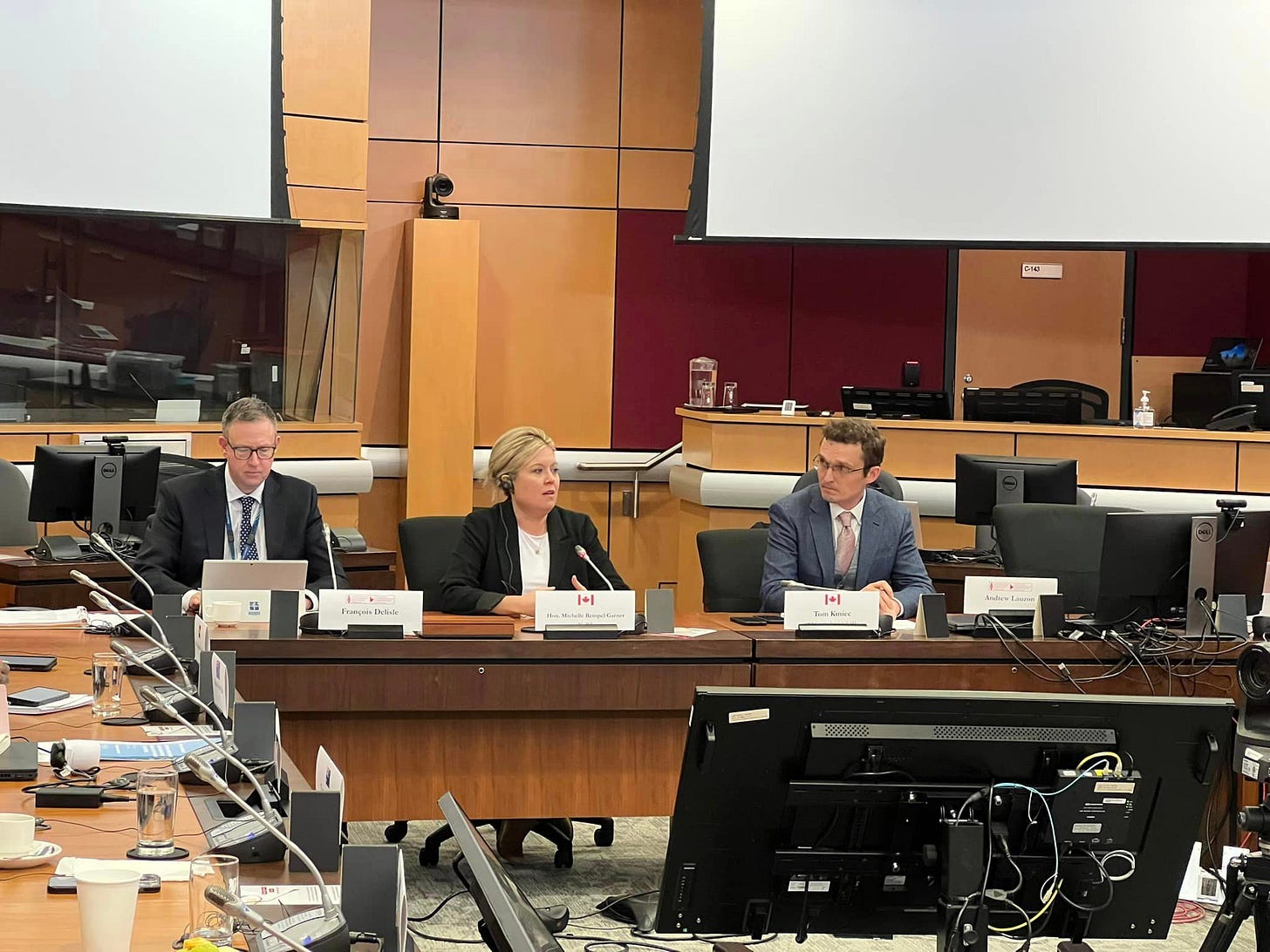NDP-Liberals Dodge the Carbon Tax Election
This week, exploring the refusal to spike the carbon tax increase, election 2025's potential delay, the end of First-Time Home Buyer’s Program, and beyond.
The Carbon Tax Election
In this edition of Resuming Debate, I want to highlight how the NDP-Liberal coalition refuses to face the Canadian public in an election over their painful carbon tax hike.
Conservatives called for a vote of no confidence last Thursday to force the NDP-Liberal MPs to face voters on their decision to go ahead with the 23% carbon tax hike on April 1. The NDP-Liberals were given a chance to axe the tax as 2/3 of the Canadian public and 7 out of 10 provincial premiers had publicly called for. Even the Liberal premier of Newfoundland and Labrador and the Liberal parties in Ontario, Nova Scotia, and New Brunswick called on the Liberals not to proceed with this hike because of the cost of living crisis.
Unfortunately, the backbench politicians for the NDP-Liberal coalition fell in line with their leaders and did not pass the vote of no confidence. This means that, on average, families in Alberta will have to pay an extra $911 net on gas and home heating, according to the Parliamentary Budget Officer. Net in this case is the difference between the total estimated cost inclusive of the damage done to the economy of a carbon tax on top of direct costs minus the recycled dollars flowing through Ottawa as a rebate limited by income. Businesses, charitable organizations and groups that operate or run buildings receive zero relief.
This is a cruel tax on Canadians, but the prime minister does not seem to care and is using his NDP-Liberal coalition to move his costly carbon tax agenda along.
Before the vote of no confidence, I forced a motion in committee on Thursday, demanding that Trudeau axe the tax and spike the hike to give financial relief to Canadians. The Liberal MPs on committee with help of their NDP allies there quickly shutdown debate.
Watch:
The NDP-Liberals must face the Canadian public in the next Carbon Tax Election. The cost of living, higher prices for goods and services and the high electricity prices caused by the carbon tax are the top issue from residents. You can count on me to continue to advocate and vote against the carbon tax.
NDP-Liberals Sneaky Election Clause
Speaking of elections and adding costs on taxpayers, the NDP-Liberals introduced legislation on Wednesday that would amend the Canadian Elections Act. Most of the amendments built on what the previous Conservative government had already implemented well over a decade ago. However, there was a subtle clause that the NDP-Liberal MPs tried to bury.
My colleague Alberta MP Damien Kurek pointed out on social media that the NDP-Liberals want to move the upcoming fixed election date from Monday, October 20, 2025, to Monday, October 27, 2025.
This sneaky one-week change would have consequences for Canadian taxpayers as October 21, 2025, is the day that Members of Parliament (MPs) elected in 2019 would gain access to their MP pension benefit.
If the next election is held before October 21, dozens of NDP/Liberal MPs risk not being vested in their pension plan. While the NDP-Liberal government claims this is being done to avoid a religious holiday they could have moved the fixed election day a week earlier. They didn't.
There amendments to the Elections Canada Act were originally labeled as electoral reform rules. Instead, the coalition Liberal and NDP MPs are again looking after themselves and offering a few modest election rule changes. We will be carefully reviewing the proposed amendments for any other suspicious changes that they could use for partisan gain in the coming weeks.
Liberals Shut Down Their Ineffective First-Time Home Buyer’s Program
The Liberal government has finally discontinued its First-Time Home Buyers program because, as I predicted years ago, it would fail and waste precious time to help first-time home buyers get their first homes.
I laid out the case against this Liberal program would fail when it was first launched in 2019. The requirement that the government have a shared equity with homeowners in the property they purchased was a new idea to accept, and difficult. Borrowers would then have to repay the government when the property sold or after 25 years, which could be adjusted if the property value changed. That added risk and uncertainty.
In my op-eds — I argued that the approach taken by the government, relying on gimmicks rather than solid economic policies, would inevitably fail to meet the needs of first-time home buyers, emphasizing that without a realistic understanding of the housing market, any program is doomed to underperform and waste financial resources.
Launched with grand ambitions, the program was met with a lukewarm response from its intended beneficiaries. The Canadian Mortgage and Housing Corporation, the crown corporation responsible for administering the program, admitted it was “undersubscribed and cannot provide significant impact to address housing challenges.”
As I wrote, “while it’s clear the government will stand to profit if home values go up, it is unclear what will happen if values stagnate or decrease. It’s a gamble with taxpayer dollars.” The gamble did not pay off as only a mere 18,500 people applied for the program. The government had projected a robust 100,000 borrowers in 3 years. They provided zero explanation for that figure at the time. Only a “minimal” number of Calgary residents applied for the program, according to the Calgary Herald.
The eligibility requirements for the program were even more absurd. The total borrower income could not be higher than $120,000, or $150,000, in Toronto, Vancouver, or Victoria. Total borrowing could be no more than four times the qualifying income, or 4.5 times in the three cities aforementioned. The Liberal program’s price tag was a $1.25 billion commitment in 2019 in a housing market worth hundreds of billions. Too small to matter and too risky for prospective first time homeowners to participate.
Industry experts, including James Laird of Ratehub.ca, criticized the program’s design, suggesting it was crafted without meaningful input from those knowledgeable about the housing market.
As I reflected in my op-eds, the promise of addressing the housing crisis rings hollow when policies fail to align with the complexities of the market and the real needs of Canadians. The Liberal government’s economic interventions have, as feared, led to broader inflationary pressures, exacerbating the affordability crisis for many aspiring homeowners.
The termination of the First-Time Home Buyer's program confirms the concerns I raised in my earlier writings. It stands as a testament to the necessity of grounded, well-informed policy decisions in tackling the housing challenges facing Canadians. The lesson is simple, big government cannot solve the problems it creates. When big government attempts to crowd out the the private sector to fix the problem it creates then it makes for smaller citizens. This failure not only cost taxpayers money but it wasted precious years while housing costs spiraled out of control. This prime minister has not been worth the cost.
Speaking at a Commonwealth Parliamentary Association Panel on AI
The practical applications of artificial intelligence (AI), including narrow and general, was the focus of my talk with members of the Commonwealth Parliamentarian Association from around the world.
AI has the potential to be a positive force in helping Canadian parliamentarians to enhance our performance and that of our staff. From assisting in administrative tasks to providing comprehensive first draft of research, AI is already rapidly changing the way parliamentarians in Ottawa interact with the public and other legislators.
While legislation and policies continue to catch up, I believe there is much practical learnings that could be done by parliamentarians who actively use AI to first drafts of legislation and policy frameworks for regulators. The users of the technology should be actively involved in informing our colleagues to the pitfalls as well as the welcome opportunities.
Meet Me for Coffee!
Want to meet me for coffee?
I will be at Good Earth Coffeehouse Cranston Market, #4060 356 Cranston Rd SE, from 5 pm to 7 pm on Thursday, March 28, 2024.
I am happy to talk about the work I am doing in Ottawa on behalf of resident or anything else related to federal politics.
Coffee is on me!








I agree with you on mostly everything except this . Moving this election day ONE week so that they’ve earned there pension makes sense. I would have definitely thought that was reasonable for our Conservative members if that was the same situation. Tom , in my opinion it should be changed to be 2 terms period.
Re: Change of next election date
I normally agree with you Tom, but as the clear intent of the pension vesting rules appears to be 6 years of service, I believe that people shouldn't lose out on a pension over 1 day. There are mo doubt some Conservatives who are affected by this too.
I have no doubt that if a business set up a scheme where folks lost their pensions over 1 day, there would be howls of protest.
Catherine